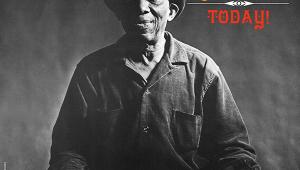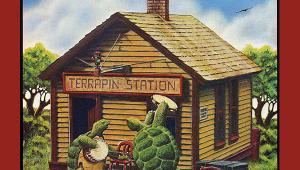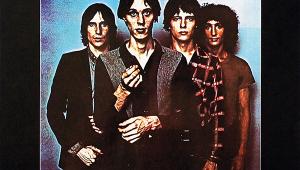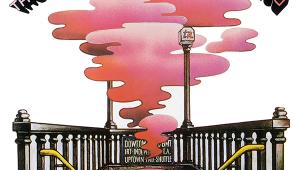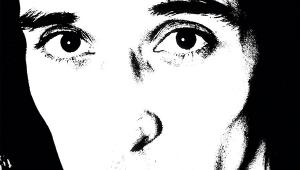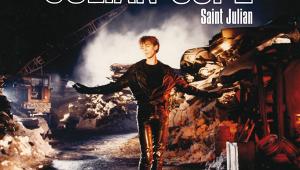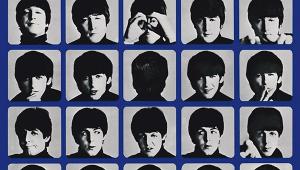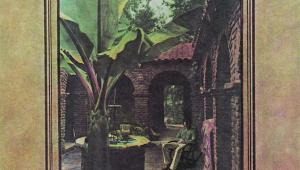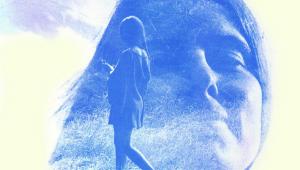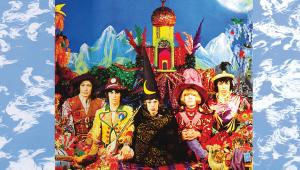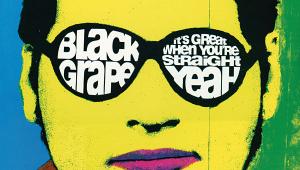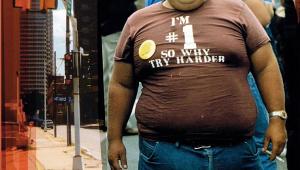Dick Dale: Surfers' Choice
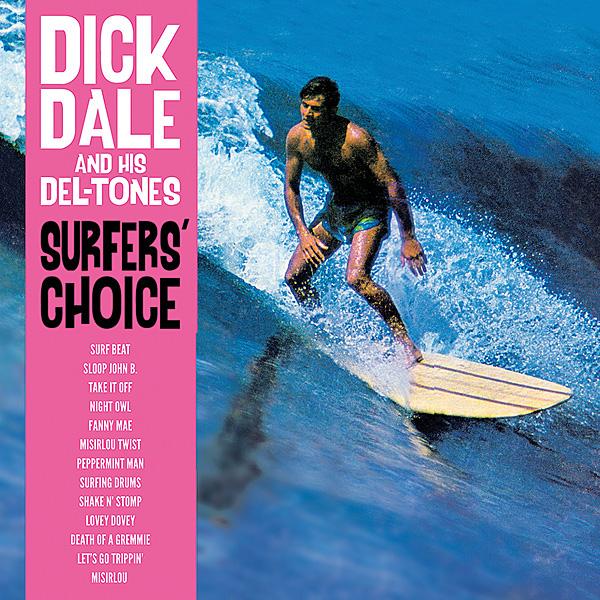
Every now and then, it's OK to be wrong. Not often, I grant you, but on occasion a long-held misbelief can be way better than the actual fact. That lyric you misheard years ago maybe, a phrase which has informed your enjoyment of a particular song – until you discover that the words and meaning were something different all along. Sometimes the reality can ruin the thereafter. And it's better to continue with your fantasy.
The latter, I feel, is the case with a favourite photo of mine. It's a black and white advert featuring a butch, blonde surfer riding a wave while riffing on a new Fender Jaguar guitar. I'd always assumed the dude on the board to be Dick Dale, widely acknowledged as the King of the Surf Guitar and a major proponent of the Fender brand.
But in researching this piece, I've just discovered, to my considerable dismay, that the hunky fellow hanging five or ten, or whatever it is these heroic chaps hang, isn't Dick at all. It's apparently this bloke called Jon Martin who just happened to be on the beach at Doheny, California, one fateful day in 1965 when photographer Bob Perine swung his Cadillac in off the Pacific Coast Highway. He was in search of an appropriate image to tie in Fender with the nationwide craze for Surf music that Dick Dale had invented and pioneered into a bona fide cultural phenomenon.
Apparently Jon was coerced into the shot, paddled out, stood on his woody, swung the Jaguar round to the front and surfed back in to shore. One take. Not a drop of briny on the guitar. Immortality.
Absurd And Awesome
Why do I love this photo so? Well, it's in equal parts absurd and awesome, which pretty much sums up Dick Dale too. It's absurd because there's zero power source to the electric guitar, which renders the photo's implication impossible – not to mention (should there have been a voltage connection) the almost inevitable outcome: death by electrocution.
But then again, it's awesome as a daydream. The combination of two of the coolest things on earth, surfing and riffing, caught in one fabulous image. I'd like to be that bloke on the board, offhandedly bashing the frets as if it were no big deal but I can't play that well and can't get my old bones up in the waves. How I wish…
You'll forgive me, I hope, for continuing to consider the dude on the board as Dick when you read this next quote where the great man explains the holy relationship between surfing and shredding.
'It's the meaning of the sounds of the waves – like the echo of the tube when my finger would be in the wall and I could hear it go "Chhhhhh!". And I'd take my strings and go, "Weeeeeer!". Then you get that rumble just before you're going to be flung over – you know – right before you're going to go over the falls and get slammed down.
'That rumbling, and all that stuff like that, they were associated with the heavy Dick Dale staccato picking. "Tk-tk-tk-tk-tkt" on those strings – it sounded like the barrel of a goddamn wave… When my guitar was growling, playing surf beat, you could hear it. You could feel it. And that's what caused surfers to call me King of the Surf Guitar. They felt that what they were hearing – what I was playing – related to the ocean.'
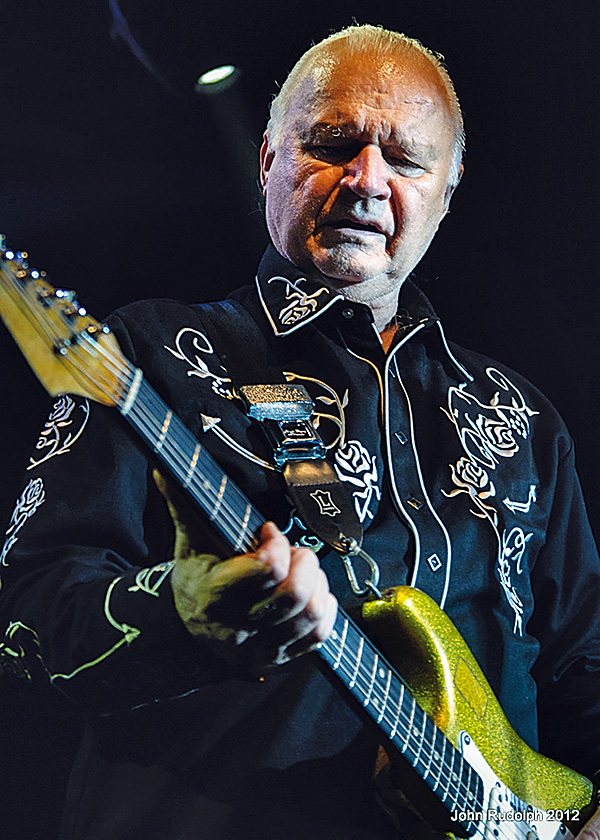
That's Dick Dale, zen god of the sunshine state. Not that his destiny was exactly preordained. He was born right across the other side of the country – Boston, Massachusetts – in 1937 and was already some kind of guitarist when his family moved to Segundo, California in his middle teens, whereupon he learned the drums in thrall to Gene Krupa and embarked upon a life-long romance with riding the waves.
Dale was left-handed so took to playing his guitar (strung normally) upside down; his style was heavy and extremely percussive. By summer 1961 he was surfing by day and gigging nightly at the local Rinky Dink ice-cream parlour in Balboa, until a row over wages and the crowds of his surfer buddies growing too big to handle, forced him to move his operation to The Rendevous Ballroom. This was a massive dance hall built in 1928, a city block long and half a block wide, with a floating hardwood floor.
Sell-Out Stomps
The venue had been closed for a number of years but Dick managed to persuade the city fathers of Newport Beach to let him reopen it, on the condition that he prohibited the selling of alcohol and implemented a dress code – he kept a box of ties at the door! The resulting 'stomps' quickly became 4000 Saturday night capacity sell-outs, and it was here that Surf Rock was born. Dick and his band, The Del-Tones, played wild and loud, routinely blowing their amps – which is where the Fender connection came in. Company owner and founder Leo Fender was keen to associate his brand with Dick's Surfing craze and offered to provide him with equipment fit for purpose.
After several trials and a lot of wreckage, this led to Dick playing a Stratocaster called The Beast and the creation of The Showman, said to be the first ever 100W guitar amp. This led to Dick trailblazing the reverb sound which adds excitement and a frisson to all manner of alt rock, indie and heavy metal to this very day.
Surf Is Born
As the rowdy crowds flocked to The Rendezvous, Dick was naturally prevailed upon to make a record of his majestic hullaballoo and, financed by his dad who worked as a machinist, the result came out in 1962, courtesy of the Deltone label. The LP was called Surfers' Choice, credited to Dick Dale And His Del-Tones. It featured another classic surfer shot taken at the San Clemente Pier by John Severson, founder of Surfer magazine.
Mostly recorded live at the venue to capture the euphoric union between the band and their audience, then tidied up with overdubs in the studio, it sold 88,000 copies and spread the gospel from the West coast right across the USA, and then the world, establishing Surf, to beach bums and land-locked groovy loafers alike, as not so much a pastime as a way of being.
Today the album still sounds mostly fantastic. It begins with 'Surf Beat', the crowd stomping and holloring as Dick's guitar overloads, a saxophone wails and the drums pound fit to bring the place down. 'Take It Off' is in much the same feverish vein, 'Surfing Drums' a series of staccato explosions over a raw Bo Diddley beat. 'Shake 'N' Stomp' speaks for itself, 'Death Of A Gremmie' slows it all down to grunge and 'Let's Go Trippin'' is a proper freewheelin' joy. Most famous is 'Misirlou Twist', a souped-up take on the original single, born of a legendary bet that Dick couldn't sustain a song on just one string. Dating back through the mists of time, it's a Lebanese number his dad used to play on the oud, but so viciously and vibrantly transformed here that Quentin Tarantino chose it to introduce his classic 1994 movie Pulp Fiction.
There are some other things too – a neat calypso take on 'Sloop John B', some classy doo-wop on 'Night Owl', and a little crooning on 'Lovey Dovey'. But it's the roarers for which the album's rightly celebrated. 'Surfers were the ones who named all my songs,' Dick would explain later. 'They'd yell out the names, and we just kept 'em.'
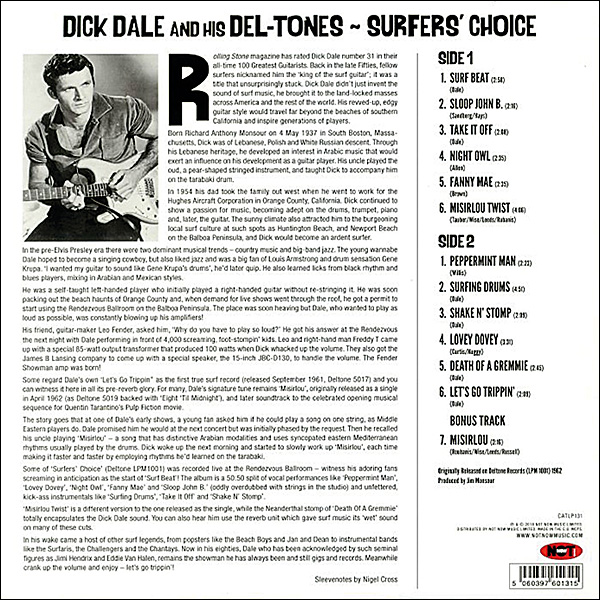
Thunder 'N' Tremble
Should you feel a yen to seek the path of sonic enlightenment and savour some pre-Jimi Hendrix unbridled guitar genius, and should your thang be thunder and tremble rather than twang, then beat yourself a route through the dunes to Dick Dale, who, alongside his twin deviant deity Link Wray, pretty much invented the power chord as an anti-authoritarian statement.
Dick's still doing his stuff, a martial arts fanatic and anti-pollution warrior who's survived cancer and breeds endangered wild animals. These days he speaks of himself in the third person, as all true crazy mavericks do. 'Dick Dale's not going to die sitting in a rocking chair emulsifying like some leaf in the eddy of a stream. It'll be on stage, it'll be in one big explosion – it'll probably be body parts. Because that's the way he plays.'
And so, to conclude: with sincerest apologies to Mr Jon Martin, it'll always be Dick Dale for me riffing on that Jaguar cresting the surf as the sun sets behind the waves – a reflection of my alternative self, far, far away, an escape from this hum-drum Midlands life.

